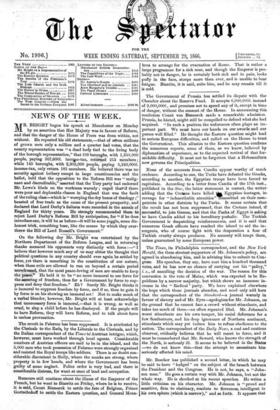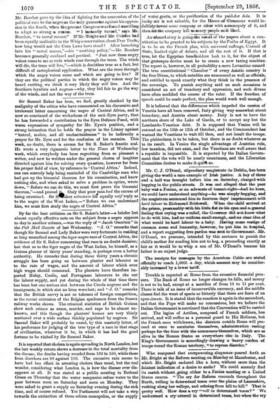Mr. Beecher has published a second letter, in which he
may be said to have " hedged " on the subject of the breach between the President and the Congress. He is not, he says, a "John- son man." He goes a certain way with Mr. Johnson, but not the whole way. He is shocked at his recent speeches. He writes a little criticism on his character. Mr. Johnson is "proud and sensitive, firm to obstinacy, resolute to fierceness, intelligent in his own sphere (which is narrow)," and so forth. It appears that
Mr. Beecher gave up the idea of fighting for the concession of the political vote to the negro as the only guaranke against his oppres- sion in the South, when theipresent Congress,wasdeandunavilling: to adopt so strong .a coarse. "‘ I instantly tamed," 8IWS Mr.. Beecher, "to moral means." If'31r. IBrightand Mr: Cobden had' been equally malleable to the Whig conservatism about Free Trade, how long would not the Corn Laws have stood ? After launching into his " moral means,"—his "soothing policy,"—Mr. Beecher becomes generally confused and poetical. "Just now these angry voices come to me as rude winds roar through the trees. The winds will die, the trees will live,"—which is doubtless true as a fact, but difficult of metaphorical application. What are the trees through which the angry voices come and which are going to live? If they are the political parties in which the angry voices may be heard rustling, we think it very likely they will live. And the Southern loyalists and negroes—why, they bid fair to go the way of the winds,. and not the way of the trees.































